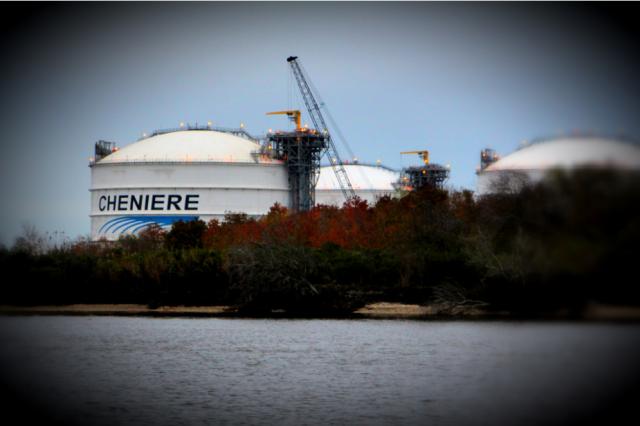
Cheniere Energy also raised its full-year adjusted core earnings forecast on Feb. 24 on expectations for improved LNG market conditions. (Source: Hart Energy)
Cheniere Energy Inc. plans to start providing LNG cargo emissions data to customers, which the company’s top exec described as a “critical first step for the industry” to improve its environmental performance.
“As one of the largest consumers of natural gas on a daily basis in the U.S., and one of the largest producers of LNG worldwide, Cheniere is ideally positioned to collaborate with domestic and international value chain participants to provide improved transparency and advance the global transition to a lower-carbon future,” Jack Fusco, Cheniere’s president and CEO, said in a statement.
Separately, Cheniere reported a smaller fourth-quarter loss on Feb. 24 as an uptick in economic activity fueled by COVID-19 vaccines lifted demand for LNG.
Net loss attributable to shareholders narrowed to $194 million, or 77 cents per share, in the quarter ended Dec. 31, from $463 million, or $1.84 per share, in the third quarter. Analysts had on average estimated a profit of 71 cents, according to a Reuters report citing IBES data from Refinitiv.
Cheniere also raised its full-year adjusted core earnings forecast on Feb. 24 on expectations for improved LNG market conditions.
Fuel sales have already started to pick up in the second half of 2020, particularly in China, after lockdown measures intended to curb the pandemic hurt natural gas prices due to lower demand for energy earlier in the year.
In January, LNG prices in Asia surged to record highs due to low stocks, a cold winter, global production outages and shipping delays, according to a Reuters report.
“A slow return towards normal is expected to occur in the coming months, depending on the speed of vaccine rollout within regions, and the speed and shape of economic recovery across the LNG importing nations,” Cheniere said in the Reuters report adding that the number of LNG cargoes for which customers notified that they would not take delivery has reduced from this summer.
The company also noted that the recent frigid weather and storm in Texas and neighboring states had no material impact on its assets or operations.
Cheniere plans to begin providing greenhouse gas (GHG) emissions data associated with each LNG cargo produced at the company’s Sabine Pass and Corpus Christi liquefaction facilities to customers beginning in 2022.
According to a company release, the cargo emissions tags are designed to enhance environmental transparency by quantifying the estimated GHG emissions of LNG cargoes from the wellhead to the cargo delivery point.
Further, the cargo emissions tags will be calculated utilizing Cheniere’s proprietary lifecycle analysis model, which has been built incorporating the accounting frameworks from lifecycle analysis models created by the U.S. Department of Energy’s National Energy Technology Laboratory. The tags will also utilize publicly available data from value chain participants, as well as operational data from both the Sabine Pass and Corpus Christi liquefaction facilities.
Headquartered in Houston, Cheniere is a full-service LNG provider with liquefaction facilities on the U.S. Gulf Coast and expected total production capacity of approximately 45 million tonnes per annum of LNG operating or under construction. The company also said in its release that its pursuing liquefaction expansion opportunities and other projects along the LNG value chain.
Reuters contributed to this article.
Recommended Reading
Diamondback to Sell $2.2B in Shares Held by Endeavor Stockholders
2024-09-20 - Diamondback Energy, which closed its $26 billion merger with Endeavor Energy Resources on Sept. 13, said the gross proceeds from the share’s sale will be approximately $2.2 billion.
Optimizing Direct Air Capture Similar to Recovering Spilled Wine
2024-09-20 - Direct air capture technologies are technically and financially challenging, but efforts are underway to change that.
Analyst: Is Jerry Jones Making a Run to Take Comstock Private?
2024-09-20 - After buying more than 13.4 million Comstock shares in August, analysts wonder if Dallas Cowboys owner Jerry Jones might split the tackles and run downhill toward a go-private buyout of the Haynesville Shale gas producer.
Matador Offers $750 Million in Senior Notes Following Ameredev Deal
2024-09-20 - Matador Resources will offer $750 million in senior notes following the close of its $1.83 billion Ameredev II acquisition.
Aethon, Murphy Refinance Debt as Fed Slashes Interest Rates
2024-09-20 - The E&Ps expect to issue new notes toward redeeming a combined $1.6 billion of existing debt, while the debt-pricing guide—the Fed funds rate—was cut on Sept. 18 from 5.5% to 5%.
Comments
Add new comment
This conversation is moderated according to Hart Energy community rules. Please read the rules before joining the discussion. If you’re experiencing any technical problems, please contact our customer care team.





